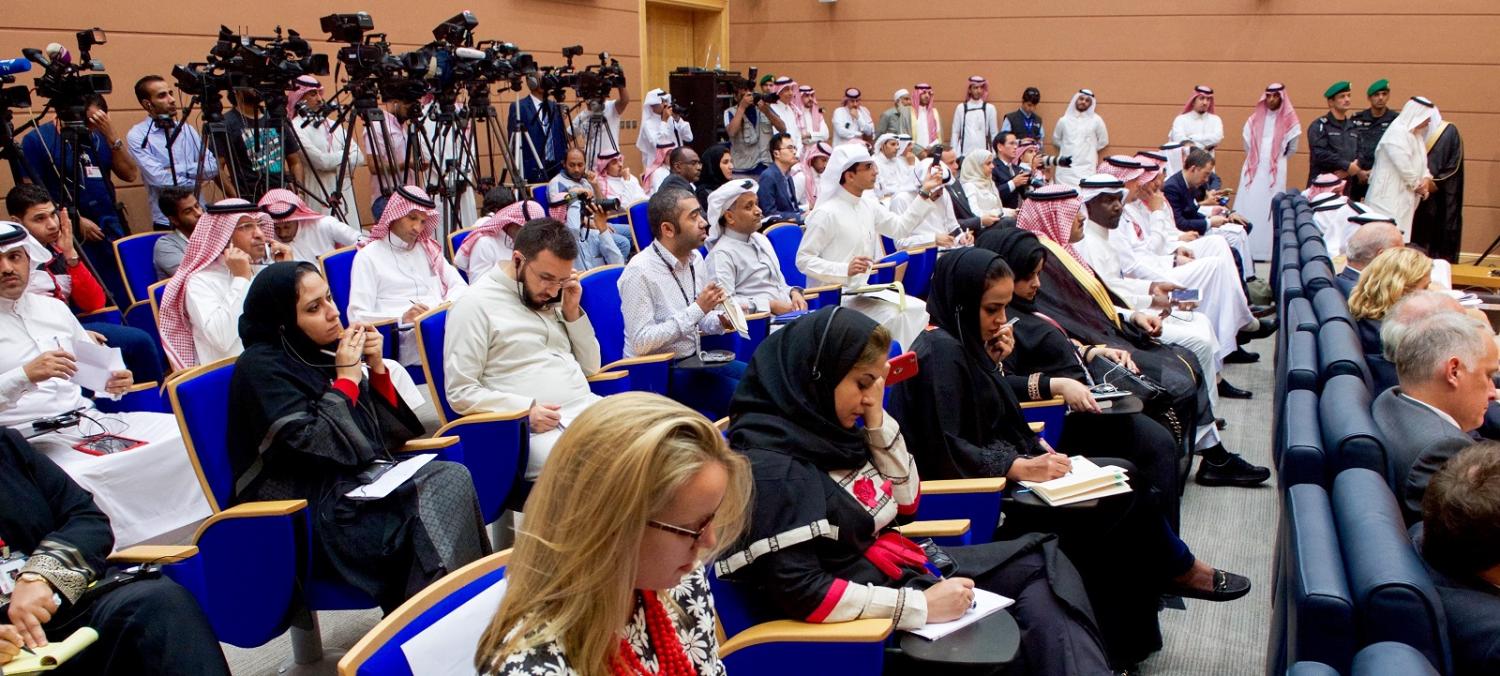This month I joined the judging panel for the annual Lowy Institute Media Awards. No spoilers – the award ceremony takes place this Saturday, 23 September, and our lips are sealed right up until the winner is announced. But I can say that the quality of the nominees was fantastic, and I enjoyed the opportunity to get acquainted with the work of some of Australia’s most able, courageous and expert journalists who write or broadcast on foreign policy issues.
This got me thinking about the relationship between journalists – particularly those working as foreign correspondents – and diplomats. While it’s true this can be adversarial, we in fact have a lot in common.
First, we are often maligned: people seem to dislike journalists almost as much as they dislike diplomats! US Novelist Norman Mailer wrote: 'If a person is not talented enough to be a novelist, not smart enough to be a lawyer, and his hands are too shaky to perform operations, he becomes a journalist.'
And our very own Ted Heath was, I suspect, not the only British PM to have jaundiced views about diplomats, saying: 'A diplomat is a man who thinks twice before he says nothing.' (In those days it was all men of course, something which I’m happy to say has changed.)
Second (and there’s no polite way to say this), there is the presumed role of booze in our professions. Yes, I admit it: alcohol has, over the years, lubricated many conversations between diplomats and their contacts, as it has between journalists and their sources. Hence jokes like:
Q: What is the difference between a camel and a diplomat?
A: A camel works for days without drinking; a diplomat drinks for days without working.
This works just as well (nay, better!) if you substitute journalist for diplomat. That said, the hard drinking-and-smoking era of Fleet Street is behind us; we are all a bit more clean-living these days. Less 'Cigarettes and Alcohol' (Oasis); more 'Nice Cup of Tea' (The Damned).
Third, each of our professions is being massively disrupted by technology. In a way it was ever thus. The reported reaction of British Prime Minister, Lord Palmerston, on receiving the first telegraph message in the 1860s was:'My God, this is the end of diplomacy!'
He was wrong, of course. But the subsequent arrival of the telephone, the computer, the internet, social media, the smart-phone, the digital age – never mind international air travel – has made diplomacy a much more contested space, putting greater emphasis on deep expertise and analysis – but also flexibility, diversity and agility.
It’s a similar story for journalists, who must run ahead of an ever shorter, faster, 24/7 news cycle; and adapt profoundly to the internet age, with print media – itself, once, a transformative innovation – in a steepening decline.
In both cases, our ability to adapt and to innovate will determine our relevance and our success in the future.
So there you have it: more allies than adversaries, with plenty in common. Diplomats and journalists aim to speak truth to power. We are often like-minded souls. With foreign correspondents in particular, we share the pleasure and pain of peripatetic lives, moving ourselves and our families around the world.
Of course there are differences, and there is a degree of inevitable caution in our dealings with each other. But there is also deep respect. When I looked at the body of work before us as the judging panel for the Media Award, I was struck that journalists continue to work in places like Yemen, Raqqa, Mosul and Damascus, long after the Embassies have shut down and the diplomats have left, for reasons of politics and/or personal safety.
So let me end with a personal tribute to all those working today in conflict zones; and remember that at least 48 journalists were killed just doing their job in 2016; and 1253 have been killed since 1992. As a diplomat, that makes me feel horrified and humbled. We still have much to do to protect freedoms and try to make the world a better, safer place.

